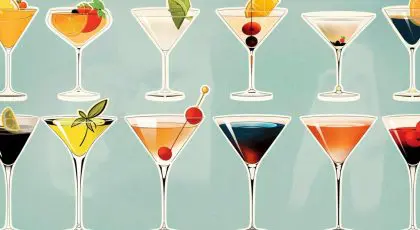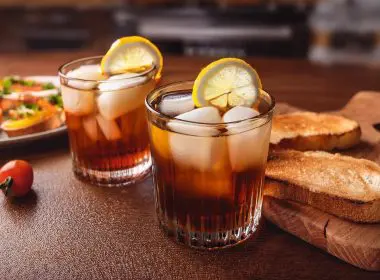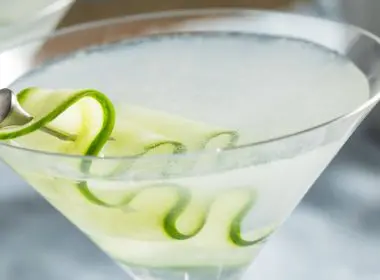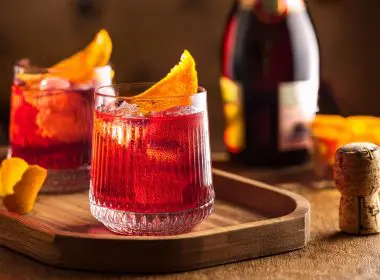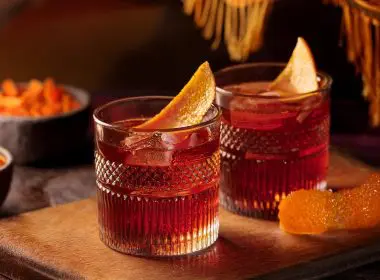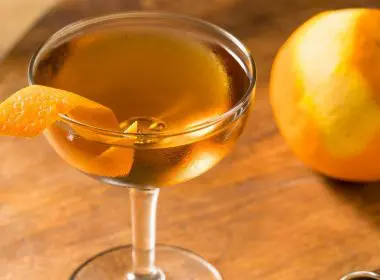What Is Vermouth? The Ultimate Guide to This Essential Cocktail Ingredient
Jump to:
What is vermouth, you ask? It seems you are just starting on a wonderful journey into the intricacies of cocktail-making, friend! Let’s get you sorted. In this short and sweet introduction to vermouth, we will look at its history, how it’s made, the difference between sweet and dry vermouth, and what it is used for.
What on earth is vermouth?
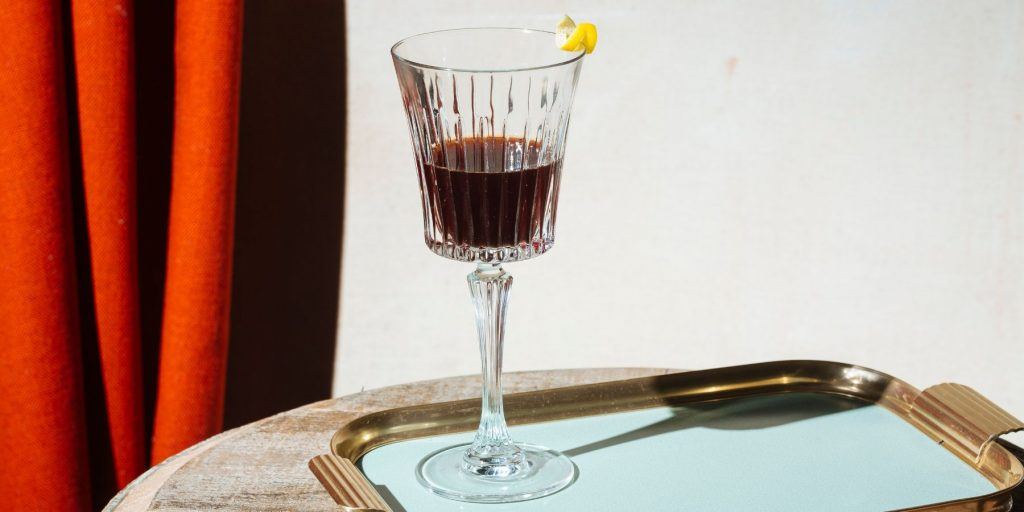
Vermouth is a fortified and aromatized wine that is in the process of shaking off a rather dusty reputation. Until recently, younger folks tended to think of it as something they’d encounter in their grandpa’s liquor cabinet. However, as with most things, the wheel has turned.
Just like grandpa cocktails are back in fashion, vermouth is also ready to reclaim its rightful spot in the popular cocktail-ingredient limelight. Essentially a fortified alcoholic aperitif that is flavored with a variety of herbs and spices, it is made from either white or red wine, and has been produced in France and Italy since the 1700s.
Different types of vermouth and what it tastes like
There are two different types of vermouth, namely sweet vermouth and dry vermouth. Each of these fortified wines has a very distinct flavor profile.
What is dry vermouth?
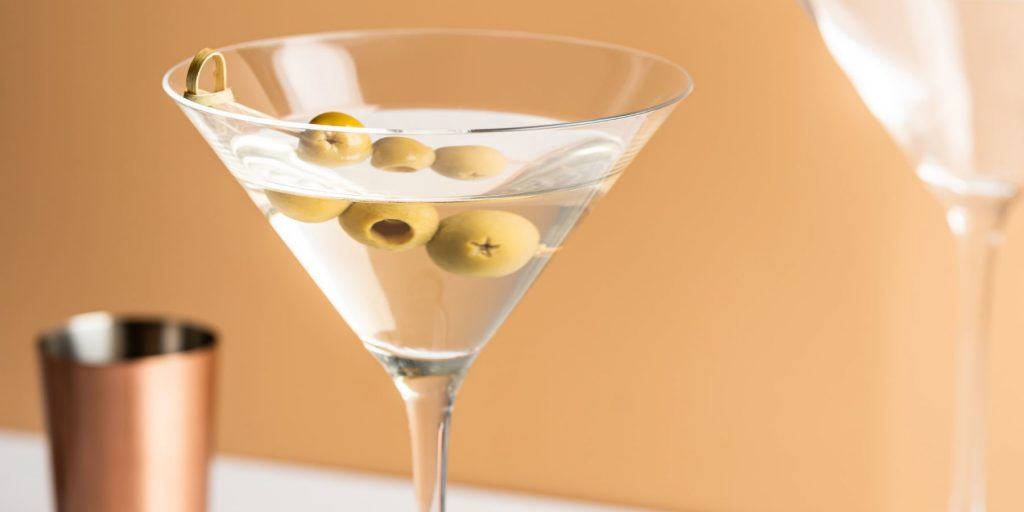
Generally clear or pale yellow in color, dry vermouth is light and airy, with well-integrated floral, fruity, and herbal notes. It is the popular choice for drinks like the classic Vodka Martini and Gin Martini because it enhances the flavors of the spirit while imparting a very subtle nuance of its own.
You can also enjoy it chilled as an aperitif on its own to savor its enticing aromas of white peach and freshly spice marjoram, and full, mouth-coating taste with hints of vanilla bean and cinnamon, with a persistent bittersweet finish.
Read more: 14 Types of Martinis You Should Know
What is sweet vermouth?
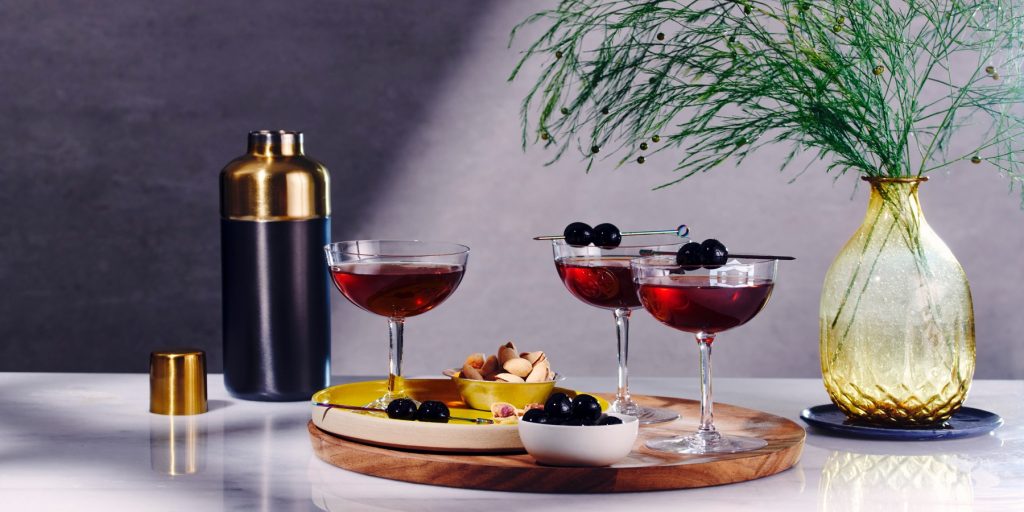
On the other hand, sweet vermouth has a richer infusion of herbs and spices, which gives it a deeper amber color. It imparts heartier notes of spices like vanilla, caramel, and darker fruits to classic cocktails like the Negroni and Manhattan.
When sipped on its own as an aperitif, you can expect to encounter upfront caramel and black cherry aromas, and a smooth taste with a subtle hint of initial sweetness, opening to spices and complex bitterness, before ending on a strong botanical note.
You might also like: What is an Aperitif and When is it Served?
The fascinating history of vermouth
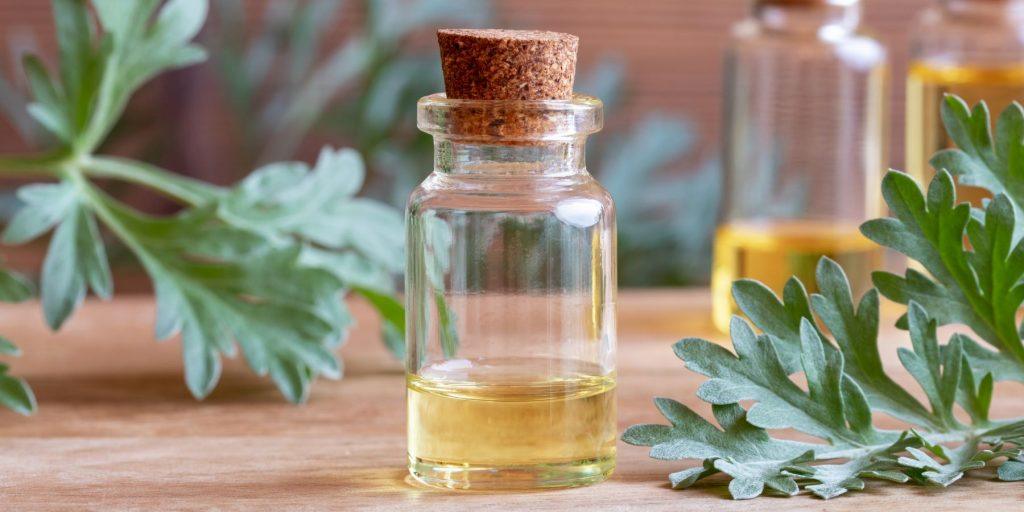
But where did vermouth come from, exactly? Today, one of the most recognizable vermouth brands around the world, Cinzano, features a range of vermouths first created by Giovanni and Carlo Cinzano, master Italian distillers since 1757. However, the history of vermouth goes back a little further than that.
The story goes that the first person known to infuse wine with an herb called wormwood and other spices was none other than the famous physician Hippocrates himself. At the time, this infusion was used as a healing and strengthening tonic. Today, historians tell us that Antonio Benedetto Carpano, a renowned Italian distiller, made a name for himself as the official inventor of vermouth. Carpano’s claim to fame came in 1786 when he created a new type of vermouth in Turin. He combined white wine with a mixture of herbs and spices to create a unique infusion, resulting in over 30 varieties of modern vermouth.
In fact, the name ‘vermouth’ is the French pronunciation of the word ‘wermut‘, which is German for wormwood.
How to store vermouth

Contrary to popular belief, vermouth does not have a never-ending shelf life once it’s been opened. In fact, it’s best to keep it in the fridge as you would do with an opened bottle of wine.
However, even when you keep your opened vermouth chilled, it will eventually start to oxidize. As such, it is recommended to only use vermouth that has been properly stored up until two months after you first cracked the cap.
Short of the long? If it’s your first time buying vermouth, rather opt for the smaller bottle. You can always get another one later.
Cocktails with vermouth to try at home
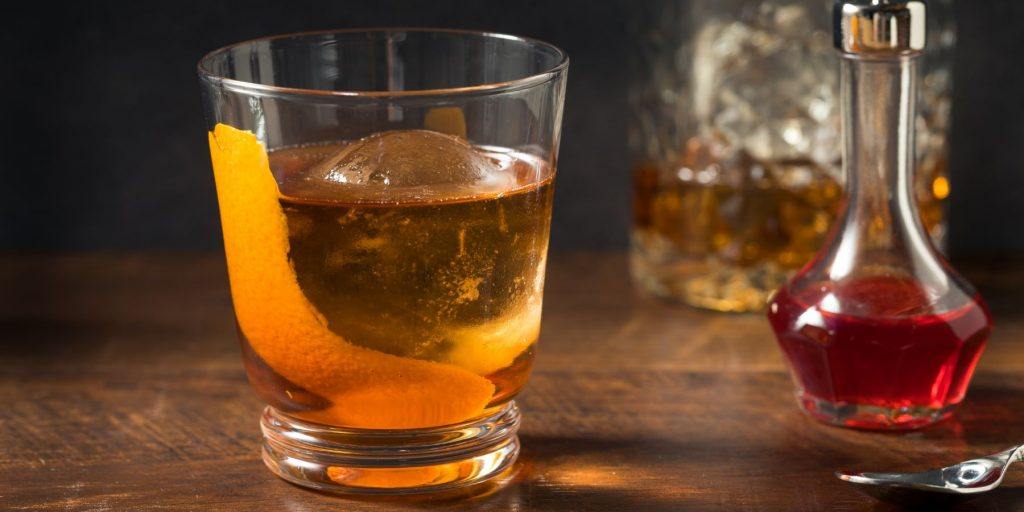
Some of the most popular cocktails over the decades have included vermouth. Here are a few of our favorites to try at home:
Best food pairings for vermouth

Wondering which foods to serve with vermouth? Here are a few of our favorite appetizer pairings for this classic drinks-trolley staple:
Charcuterie platters
The full-flavored profile of cured meats is a perfect match for the spirit-forward combination of a vermouth-based cocktail like the Negroni. Strong piquant hard cheeses are also delicious to add to this mix and make for easy nibbles when hosting at home.
Butter boards
Have you seen the amazing new butter board trend doing the rounds on social media? You smear softened butter (or cream cheese if you’re feeling a little extra) onto a serving platter and then top it with all sorts of bits and bobs.
You can either go sweeter, with a drizzle of honey, chopped nuts, and dried fruit, or play in the savory space with additions like bacon bits and chopped chives. Served with crackers for scooping, it’s the ultimate sharing snack.
Seafood like oysters and clams
When enjoyed on the rocks as an aperitif, vermouth is a natural match for seafood, especially shellfish like oysters, crab, and prawns.
Read next: How to Slay Cocktail and Appetizer Pairings Like A Pro
Expert tips from Tris
Tristram Fini, our friend from the Campari Academy UK, has shared some interesting insights on vermouth, how oxidation affects its taste, and how to use it in cocktails:
The impact of botanicals on vermouth flavor
Vermouth’s distinct flavor profile is primarily defined by its key botanical: wormwood. In fact, the term “vermouth” is derived from the Germanic word for wormwood. Due to its origins in the Savoy region, which spans parts of France and Italy, the French pronunciation of vermouth became prevalent when marketed as a bottled product in the 1780s.
In addition to wormwood, traditional botanicals like cassia, gentian, and juniper are essential. However, vanilla plays a pivotal role in enhancing vermouth’s complexity. Historically, during the 1780s, vermouth was referred to as “Vini di Lusso,” meaning “wines of luxury”. Importing exotic ingredients like vanilla, which did not grow locally, added a touch of luxury to the blend.
Today, vanilla is commonly featured in modern vermouth production, especially with the trend toward premiumization. Its inclusion, alongside traditional botanicals, adds a unique dimension to vermouth, making it a standout ingredient in cocktails.
How oxidation affects the taste of vermouth
Oxidation itself is a process that, at a structural level, involves the degradation of the wine within a product. In vermouth, which is fortified and aromatized, this process stabilizes the drink to some extent. Think of oxidation as a loss of freshness rather than outright spoilage.
When you first open a bottle of vermouth, it is bright and vibrant, showcasing citrus notes, intensity, and a lovely drive. Over time, however, the flavors will begin to dull. While it takes a while for vermouth to technically spoil, this depends on the producer, the fortification process, the amount of sugar present, and the style of the vermouth itself. Ultimately, it will start to taste flatter and flatter.
You can compare opening a bottle of vermouth to breaking a cinnamon stick in front of you while cooking. This action releases aromatic compounds into the atmosphere, resulting in that bright, fresh aroma—much like when you first open the vermouth. On the other hand, if you were to smell powdered cinnamon that had been sitting in your pantry for years, it would evoke memories of cinnamon but lack the vibrancy and complexity of its fresh counterpart.
In short, it’s best to use vermouth in its freshest state to get the best out of your cocktails.
Balancing vermouth in cocktails
Start with templates of the classics. Cocktails like the Martini, Manhattan, Negroni, and even variations such as the Sherry Cobbler or Blood and Sand showcase how vermouth fits into a drink structurally. By examining these established recipes, you can adapt that same approach to your own creations.
If you find yourself leaning towards more intense flavors, consider how different vermouths are produced. Some vermouths have a more pronounced flavor profile, while others are more subtle. The key is moderating the amount you use in your cocktail to ensure a balanced combination that enhances rather than overwhelms the other ingredients.






